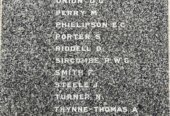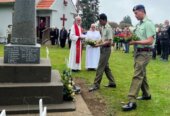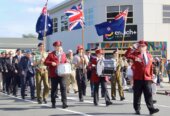Record numbers attending Anzac Day events around the region, and the messages delivered at those services, suggest a heightened public awareness of escalating global tensions.

Barbara Kuriger at Pukeatua. Photo: Viv Posselt
The messages have been widespread. Taranaki-King Country MP Barbara Kuriger asked ‘when are we going to learn from all of this?’ when speaking at the Te Awamutu civic ceremony and at the end of a service at the Pukeatua War Memorial Church.
Guest speaker at Te Kūiti’s Anzac Day service, Terry Bradley, said the world seems ‘more divided than ever’ and said we seem to be living in the age of the dictator.
Waitomo mayor John Robertson echoed those views and said ‘we watch and worry about where civilised society has gone’ in a world more on edge.
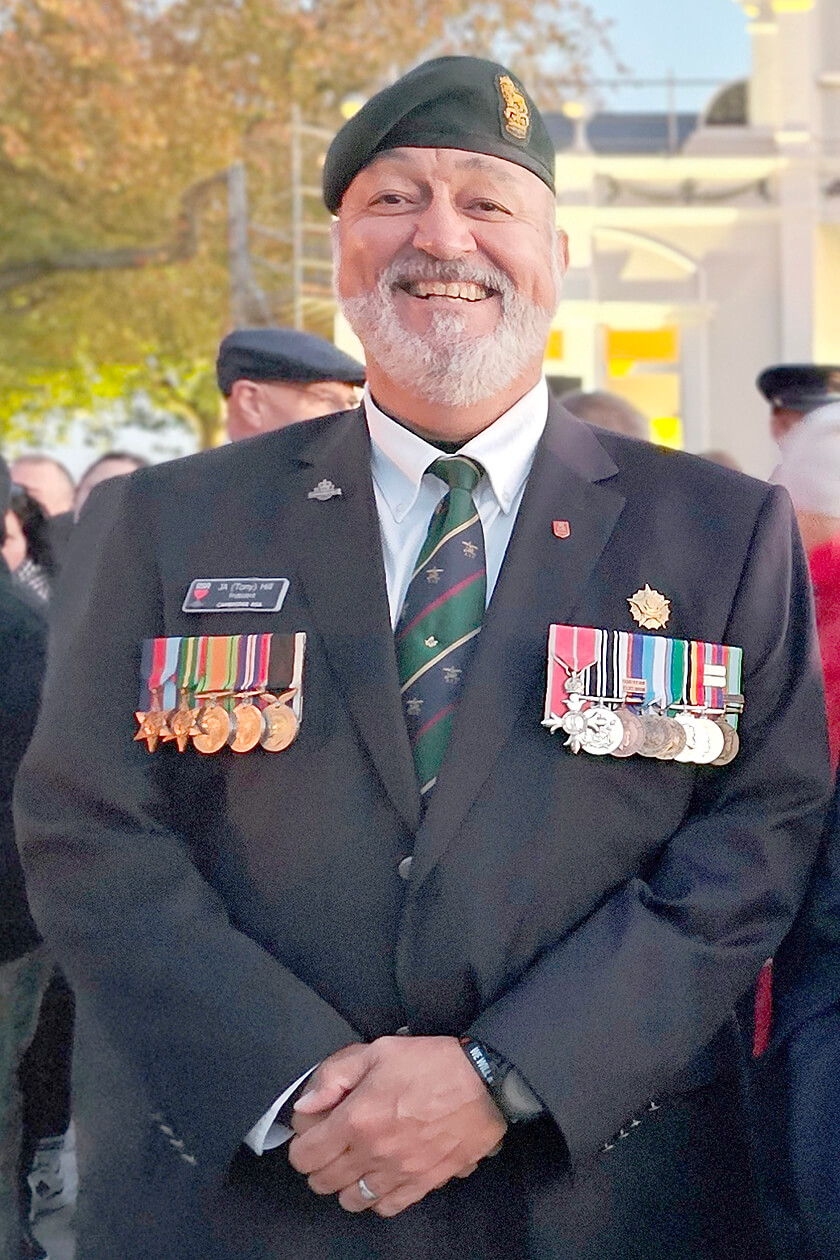
Tony Hill
Similar views, increasingly expressed nationally and internationally, came when The News reported on an address by NZDF Brigadier and Cambridge businessman Jon Broadley who cautioned New Zealanders against complacency and said our geographical distance offers no buffer against the effects of global conflict.
The link between increasingly volatile geopolitics and growing numbers at Anzac Day events comes as no surprise to one of two national vice-presidents with the NZ Returned Services Association and Cambridge RSA president, James ‘Tony’ Hill MBE.
He said on Monday that heightened awareness of global conflicts was likely attributable to today’s almost instantaneous news coverage via social media.
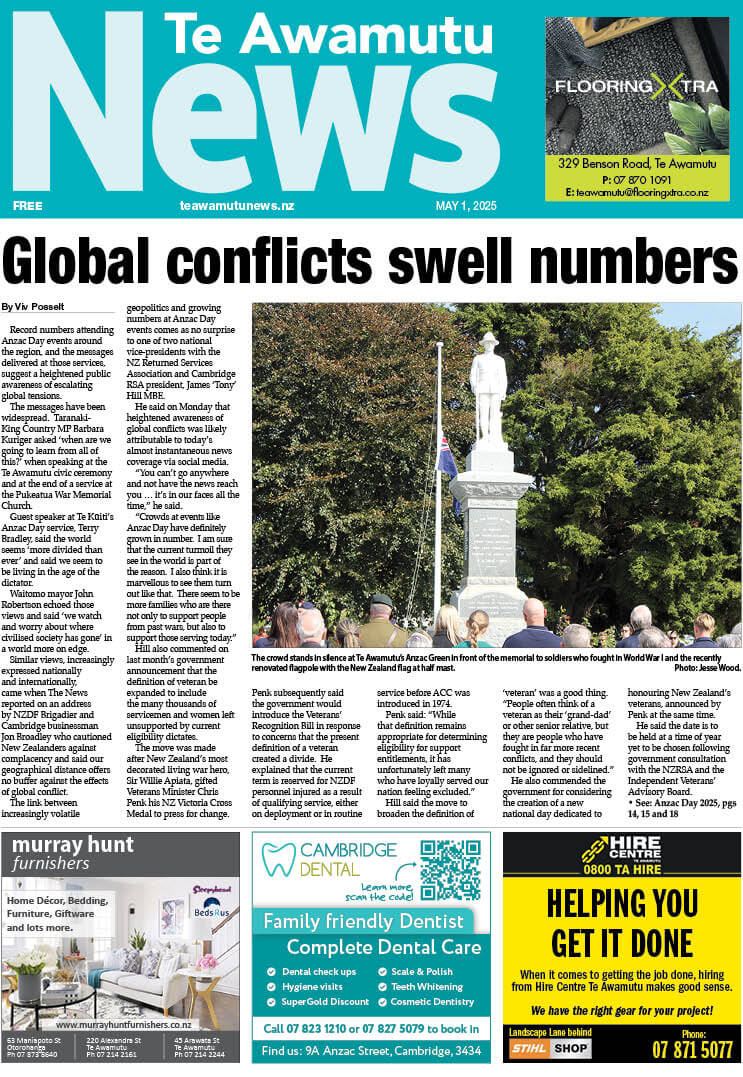
Te Awamutu News 1 May 2025
“You can’t go anywhere and not have the news reach you … it’s in our faces all the time,” he said.
“Crowds at events like Anzac Day have definitely grown in number. I am sure that the current turmoil they see in the world is part of the reason. I also think it is marvellous to see them turn out like that. There seem to be more families who are there not only to support people from past wars, but also to support those serving today.”
Hill also commented on last month’s government announcement that the definition of veteran be expanded to include the many thousands of servicemen and women left unsupported by current eligibility dictates.
The move was made after New Zealand’s most decorated living war hero, Sir Willie Apiata, gifted Veterans Minister Chris Penk his NZ Victoria Cross Medal to press for change. Penk subsequently said the government would introduce the Veterans’ Recognition Bill in response to concerns that the present definition of a veteran created a divide. He explained that the current term is reserved for NZDF personnel injured as a result of qualifying service, either on deployment or in routine service before ACC was introduced in 1974.
Penk said: “While that definition remains appropriate for determining eligibility for support entitlements, it has unfortunately left many who have loyally served our nation feeling excluded.”
Hill said the move to broaden the definition of ‘veteran’ was a good thing. “People often think of a veteran as their ‘grand-dad’ or other senior relative, but they are people who have fought in far more recent conflicts, and they should not be ignored or sidelined.”
He also commended the government for considering the creation of a new national day dedicated to honouring New Zealand’s veterans, announced by Penk at the same time.
He said the date is to be held at a time of year yet to be chosen following government consultation with the NZRSA and the Independent Veterans’ Advisory Board.
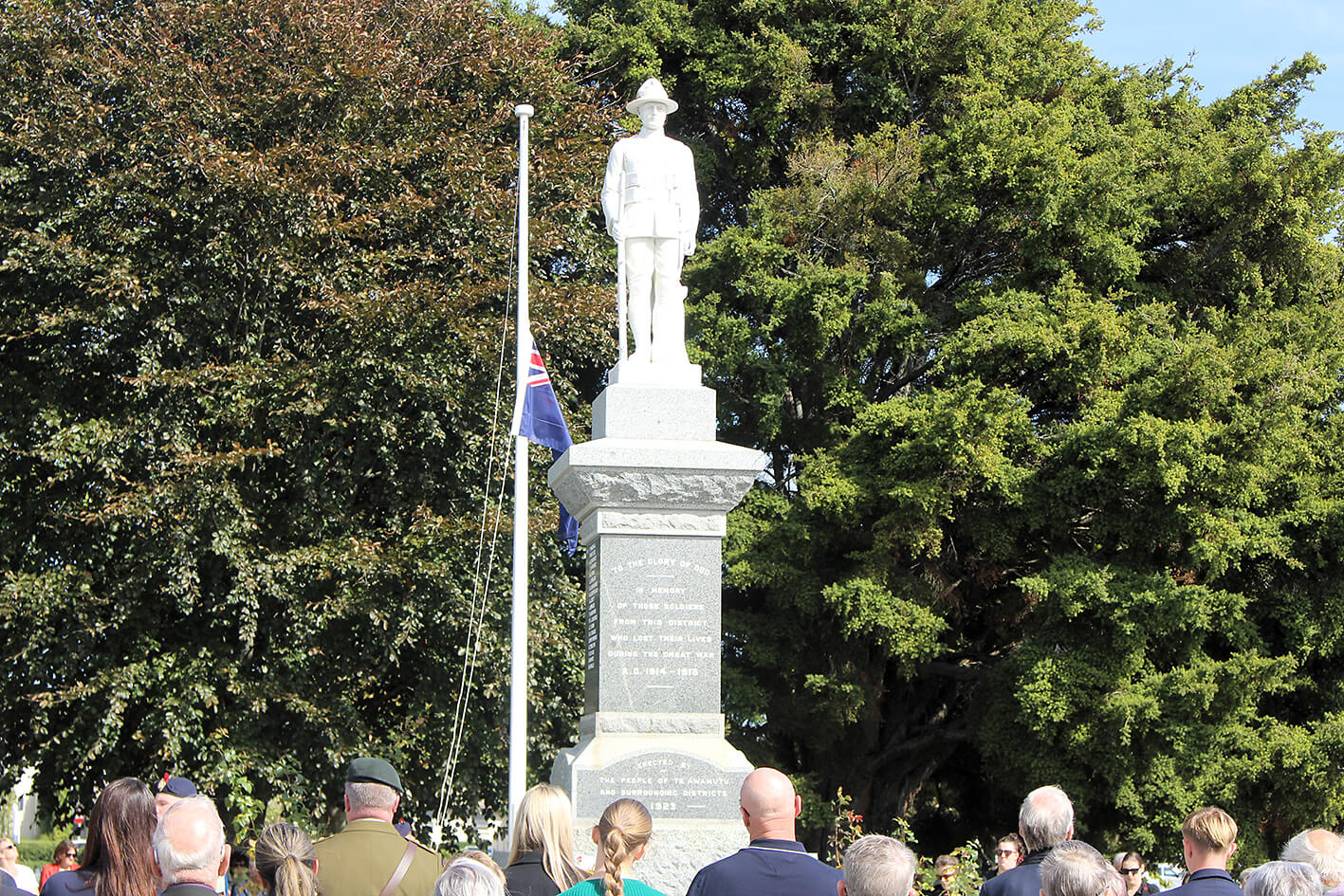
The crowd stand in silence at Te Awamutu’s Anzac Green in front of the memorial to soldiers who fought in World War I and the recently renovated flagpole with the New Zealand flag at half mast. Photo: Jesse Wood.






